Fruits can be your diet ally or saboteur – depending on how you consume them, say dietitians
Both fruits and soft drinks are sweet but why is one better for you than the other? Can fruits make you gain weight? CNA Lifestyle goes in search of diet answers.
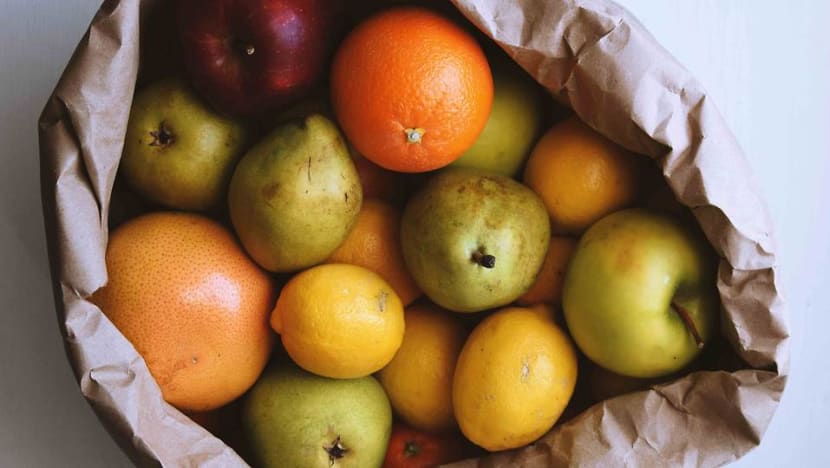
(Photo: Unsplash/Kristina Tripkovic)
These are confusing times when it comes to sugar. While there is no grey area when it comes to the adverse effects of added sugar on your health – think diabetes, heart disease, high blood pressure and weight gain – you may not be so sure about the sugar found naturally in food like fruit.
But wait, how can fruit be bad for you when the Health Promotion Board (HPB) advises us to eat at least two servings of fruit a day? Should we be worried about the sugar in fruit? Are certain fruit better for you than others? Does fruit... make us fat?
DIFFERENTIATING THE SWEET STUFF
First, not all sugars are the same. “While all sugars give us energy, there are subtle differences in the way each type of sugar is absorbed and digested,” said Jaclyn Reutens, clinical dietitian and the founder of Aptima Nutrition & Sports Consultants.
What gives fruit their sweetness is fructose – a carbohydrate naturally found in them. “When you eat fruit, your blood sugar levels rise slowly,” said Reutens.
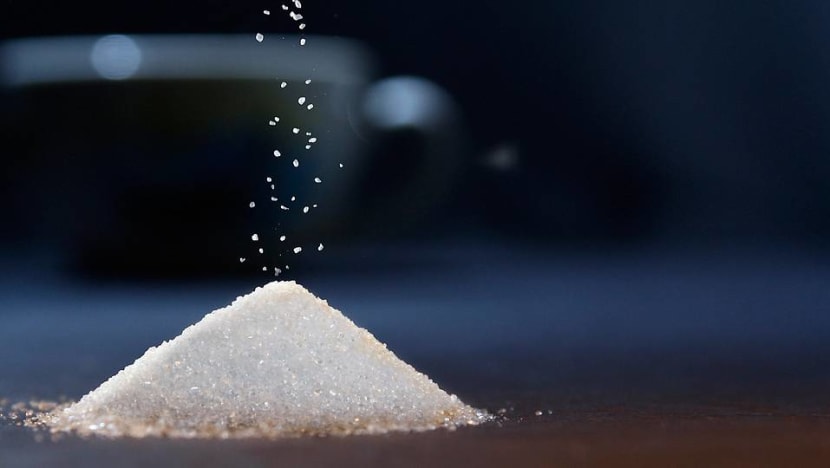
But in highly processed food, such as bubble tea, biscuits, cakes, sweets, and even savoury items like frozen dinners, sucrose and high-fructose corn syrup (HFCS) are added to improve their flavours. “When you eat these foods, your blood sugars levels soar,” said Reutens, referring to the potentially diabetes-causing situation you want to avoid.
Unfortunately, HFCS is used in many foods you see in the supermarket. Take boxed fruit juices, for example. Although juice is already naturally high in sugar, some food manufacturers sweeten it even further with HFCS, making the level of sugar comparable to the amount added to soft drinks – and in some cases, even more than soft drinks, according to the Healthline website.
Even a single serving of certain flavoured low-fat yoghurts – which you may think is healthy – could contain over 40g of sugar. The same can be said of other seemingly “healthy” foods, such as cereal and granola bars, which are heavily sweetened with HFCS, noted the website. These foods can easily bust the limit to your daily intake of added sugar, which is no more than 8 to 11 teaspoons, or 40g to 55g, according to the HPB.
SUGAR IN FRUIT
Fructose is what contributes to your calorie intake. Here’s a look at how some common fruits rank on the fructose meter, from the lowest to the highest.
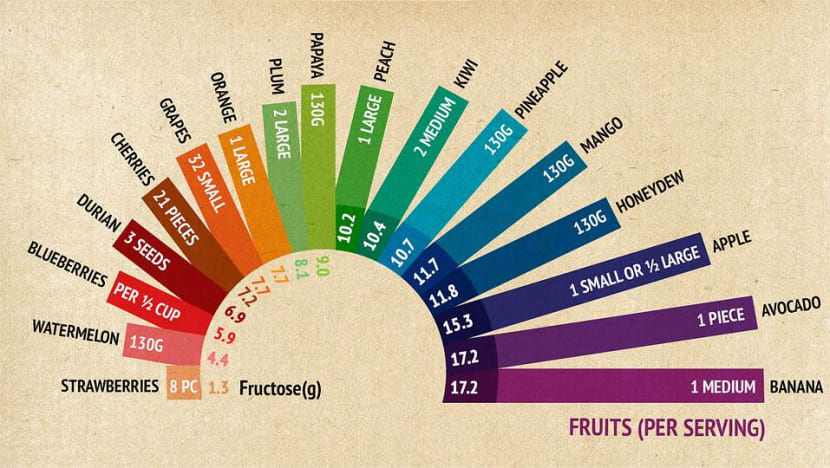
A serving of fruit would give you 10g to 20g of fructose. Two servings a day, as recommended by HPB, would provide 20g to 40g, said Reutens.
"If we're consuming natural sugars within the healthy eating guidelines, for example, two servings of fruit per day, and adequate amounts of low glycaemic index carbohydrates, which do have some natural sugar in them, this is meeting the guidelines of what you're looking for," said dietitian Chloe McLeod on HuffPost Australia. "It's more about looking at added sugars. We want those added teaspoons in the day to be quite low."
If you’re thinking of clearing your fridge of fruit to help you lose weight – don’t. “Forget the notion that fruit makes you fat,” said Reutens. "It’s a fact that we do not eat enough fruit. One in four Singaporeans do not meet their recommended intake, so how can we attribute weight gain to fruit?” she said.
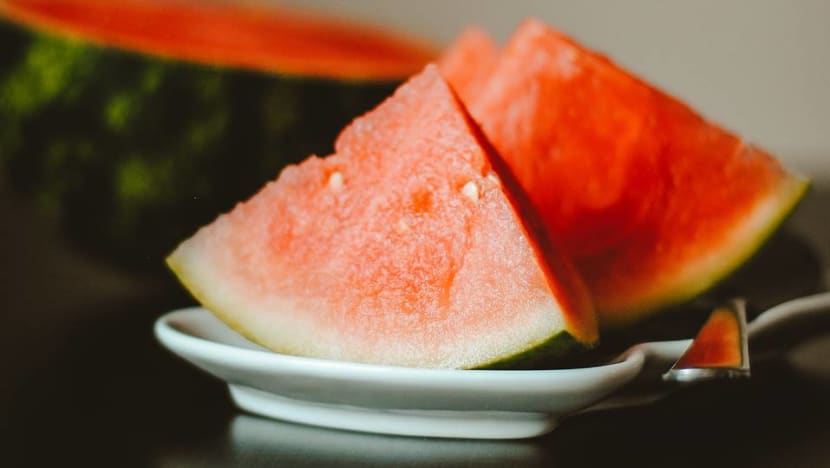
On the contrary, fruits are a must if you want to lose weight. “Fruits give you satiety, which enables you to control your appetite. Fruits are also naturally sweet, so they help to satisfy your sweet cravings with far fewer calories than cake or any sweets,” said Reutens. “Fruits are a source of dietary fibre in your diet. They also give you vitamins and minerals as well as phytochemicals that foods in other food groups cannot provide. Eat your two servings a day.”
But that doesn’t give you the licence to binge on fruit either. "It's not that fruit is unhealthy; it just means that if you're having (six or seven) pieces of fruit, it's unlikely you're going to meet your veggie requirements, daily nut intake, or dairy intake per day. It's about fitting it all together,” said McLeod.
Moreover, “we eat foods, not single nutrients,” said Reutens. If you avoid fruit to minimise your intake of fructose, you may run into nutrient deficiencies, she said. Take, for example, avocados. They rank high on calorie content but they are also packed with monounsaturated fats, which are good for improving the level of good cholesterol (HDL) in the body, she said.
Conversely, if you regularly eat energy-rich bananas and do not burn off the calories, you can potentially gain weight, said Reutens. But that doesn’t mean you should stay off bananas – they are also a fantastic source of potassium, which helps with muscle contractions and prevents cramps, she added.
BEST WAY TO JUICE UP
What about fruit juices then? It depends on how the juice is derived. “The majority of the nutritional value in fruits is found in the pulp and flesh, which provide fibre,” said Reutens. “If you remove them, you are left with very little nutritional value. You may get some Vitamins A and/or C, or whatever is left after oxidation.”
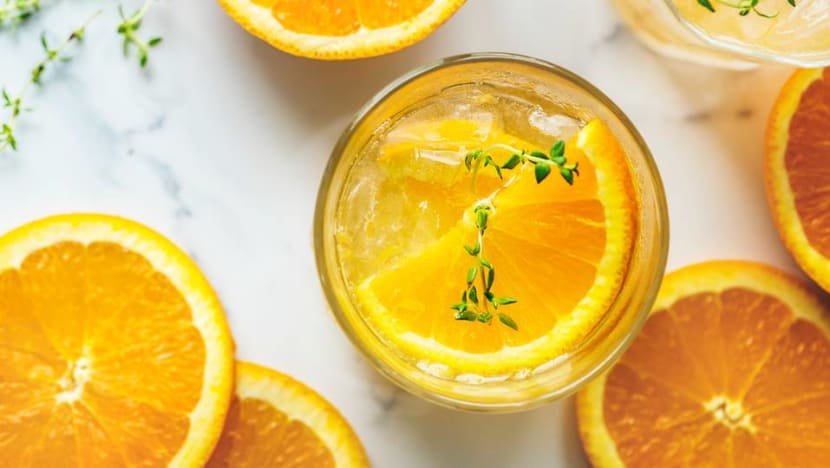
Should you still order a juice instead of a soft drink for lunch? “You are better off with fruit juice,” said Reutens. “The calories are much lower in fruit juices but there are no added sugars, and the juices also contain some, albeit, small amounts of vitamins and minerals. Bubble tea and blended drinks are also high in fat.”
For instance, a cup of watermelon juice has 95 calories and 20g of sugar. If you have a 330ml can of Coke, you’ll be consuming 133 calories and nearly 35g of sugar, said Reutens. Bubble tea with pearls and milk are worse at 232 calories and 24g of sugar.
The worst choice, in terms of calories and sugar intakes, are blended drinks, such as yoghurt drinks, smoothies and mixed fruit juices. Each cup can give you over 400 calories and nearly 40g of sugar if you don’t watch what you put into it.
GETTING THE MOST OUT OF FRUIT
It’s all about maximising the amount of nutrients when it comes to eating fruits. To that purpose, it is best that you eat the fruit as soon as you cut or prepare it.
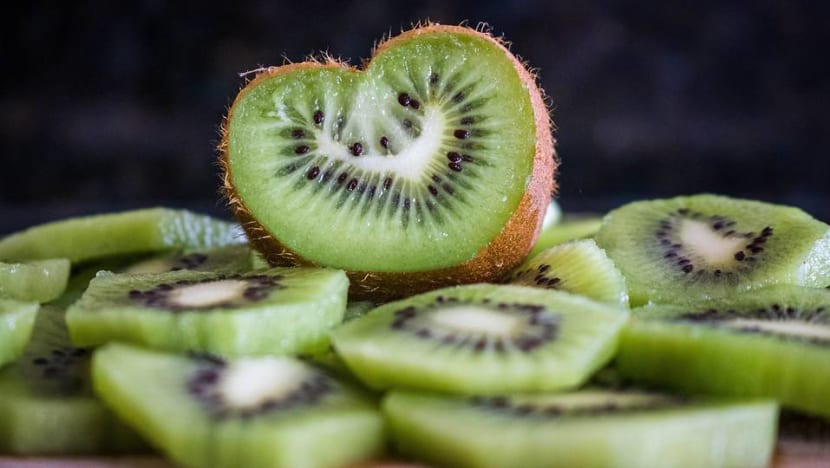
“Fresh fruits have enzymes in their tissues. When a fruit is sliced, the enzymes get exposed to the oxygen in the air and oxidation occurs. That is why fruits turn brown. When oxidation occurs, Vitamin C gets lost,” explained Reutens. The longer the fruit is exposed, the less Vitamin C it will have.
However, if pre-cut, cellophane-wrapped fruit is all that you can find at the supermarket or convenience store, you will still reap the benefits of its dietary fibre, potassium and remaining vitamins,” she said. To supplement your vitamin intake, alternate pre-cut fruit with whole fruit, she advised.















